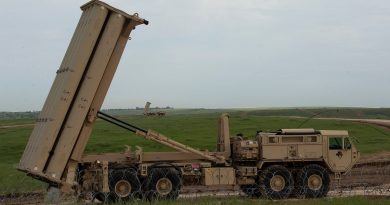Myanmar protest plan for general strike draws threat from generals
Facebook has banned the sharing or viewing of our news articles on its platform. For independent journalism straight from the source, download our app and sign up to our newsletters.
Yangon: A call for a Monday general strike by demonstrators in Myanmar protesting the military’s February 1 seizure of power has been met by the ruling junta with a thinly veiled threat to use lethal force, raising the possibility of major clashes.
The call for a general strike was made on Sunday by the Civil Disobedience Movement, a loosely organised group leading resistance to the army’s takeover.
The casket containing the body of Mya Thwet Thwet Khine being bringing through the crowds towards the cemetery in Naypyitaw Myanmar.Credit:AP
State television broadcaster MRTV late Sunday carried a public announcement from the junta, formally called the State Administration Council, warning against the general strike.
“It is found that the protesters have raised their incitement towards riot and anarchy mob on the day of 22 February. Protesters are now inciting the people, especially emotional teenagers and youths, to a confrontation path where they will suffer the loss of life,” it said in an English language text shown onscreen.
The spoken announcement in Burmese said the same thing.
Another part of the statement blamed protesters whose numbers allegedly included criminal gangs for violence at demonstrations, with the result that “the security force members had to fire back.” Three protesters have been shot dead so far.
The protest movement has embraced nonviolence and only occasionally gotten into shoving matches with police and thrown bottles at them when provoked.
Mya Thwet Thwet Khine, lies in a coffin during her funeral in Naypyitaw, Myanmar on Sunday.Credit:AP
In Yangon, the country’s biggest city and commercial capital, trucks cruised the streets on Sunday night blaring announcements that people should not attend protests Monday and must honour a ban on gathering of five or more people. The ban on gathering was issued shortly after the coup but not enforced in Yangon. which for the past two weeks has been the scene of large daily demonstrations.
Many social media postings ahead of the scheduled nightly 1am cutoff of internet access service said security forces had set up roadblocks at strategic points in the city, including bridges and on streets leading to foreign embassies. Information on Twitter accounts that have proven reliable in the past said that the normal blocking of internet access from 1am to 9am would be extended to noon in Yangon.
Facebook took down the main page of the Myanmar military for violating its standards against inciting violence.
Earlier on Sunday, crowds in Myanmar’s capital attended a funeral for the young woman who was the first person confirmed to have been killed in the protests, while demonstrators also mourned two other protesters who were shot dead on Saturday.
Mya Thwet Thwet Khine was shot in the head by police on February. 9, two days before her 20th birthday, at a protest in Naypyitaw, and died on Friday.
Mourners lined the entrance to a cemetery in the city as the hearse carrying her body arrived and was taken to a crematorium where more people had gathered. They silently raised their hands in three-fingered salutes — a sign of defiance and resistance adopted from neighbouring Thailand — as the black and gold vehicle rolled slowly past.
Inside the crematorium hall, the lid on Mya Thwet Thwet Khine’s coffin was partially removed to allow a last glimpse of her head resting on a bed of red and white roses before she was cremated. Members of the crowd outside chanted “Our uprising must succeed!”
Elsewhere in Myanmar, protesters against the coup that ousted the nation’s leader, Aung San Suu Kyi, gathered again Sunday.
Demonstrators turned out in force in Mandalay, the country’s second-biggest city, where security forces shot dead two people on Saturday near a dockyard where the authorities had been trying to force workers to load a boat. The workers, like railway workers and truckers and many civil servants, have joined the civil disobedience campaign against the junta.
Reuters
Most Viewed in World
Source: Read Full Article




